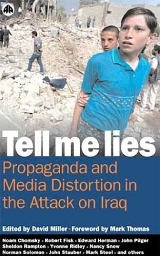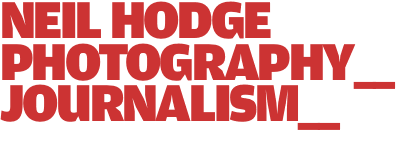Site created by Amplitude. |
||
Tell me lies review
Tell me lies: Propaganda and media distortion in the attack on Iraq, Edited by David Miller – published in paperback by Pluto Press, 310 pages, £12.99
Anyone who is familiar with Philip Knightley’s study of war reporting The First Casualty will know that the quality of conflict journalism has been in sharp decline since its high point in the Viet Nam war and that – bizarrely – the more journalists at the scene, the worse the coverage gets. The 1991 Gulf War, the invasion of Afghanistan, and the recent invasion of Iraq were covered by the largest numbers of journalists of any previous conflict, but there is little to differentiate the content or quality of the overwhelming majority of the reports filed. With the exception of those journalists at the scene, everyone else accepts that the quality of reporting in the Iraq war was dismal and Tell Me Lies helps show just how bad the coverage was.
The book – a compilation of 32 essays written by an assortment of journalists, academics and columnists – explores how governments launch and conduct propaganda wars, as well as the vital role the media play in peddling government disinformation. The book makes a strong case for journalists to take a moral viewpoint towards war reporting, as well as for presenting war in straight terms of death, destruction and carnage rather than such euphemistic phrases as “surgical strikes” and “collateral damage”.
Renowned journalist John Pilger opens the book with a series of articles castigating newspapers and journalists for their sloppy reporting and their failure to take a moral stand against what the judges at Nuremberg deemed the most serious crime of all – an unprovoked attack on a sovereign country offering no threat.
Other media heavyweights also wade into the debate. The Independent’s Middle East expert Robert Fisk argues that the real cause of misreporting is self-censorship. As he says: “In most cases journalists turn up on assignments on major stories, certainly in the case of the American media, with a clear idea of what limits there are and what constraints there are.” He adds: “We [journalists] should not be employed to be automatons to effectively just be a voice for spokesmen. We should be out there telling it how it is.”
Other contributors include Noam Chomsky, Edward Herman, Mark Steel, Yvonne Ridley, and Greg Philo and Maureen Gilmour.
The book also picks up on an equally worrying trend jeopardising war coverage – that if journalists refuse to “embed” with armed forces, they run the risk of being military targets. When the Arab TV network Al Jazeera was hit by two US smart missiles, a Pentagon spokesman was non-apologetic about targeting the station, saying that the network was considered a legitimate target because it had “repeatedly been the location of significant al-Qaeda activity”. This “activity” turned out to be interviewing Taliban officials. Al Jazeera’s offices, as well as those of Abu Dhabi TV, were also targeted in Baghdad. Three journalists were also killed when the US bombed the Palestine hotel where the Pentagon was aware many journalists were based in the Iraq conflict. Fifteen western journalists were killed in the short conflict, with three others still unaccounted for, making the Iraq war one of the most dangerous for journalists to cover.
While Tell Me Lies justifiably criticises the poor reporting of the Iraq war and the pro-Israel slant that seems to be a precondition of any Middle-East related story, the book smacks of self-congratulatory slaps on the backs for those hacks (who curiously seem to be either old or British) that did not buy the official line. While some journalists may have raised more questions than others, they rarely got sufficient answers and they simply shoe-horned reservations into stories that were still substantially based on military and government propaganda. Still, the book is a must for those who want to gain some reassurance – if that is the right term – that war reporting has rarely been any good anyway.
“With the exception of those journalists at the scene, everyone else accepts that the quality of reporting in the Iraq war was dismal and Tell Me Lies helps show just how bad the coverage was”

